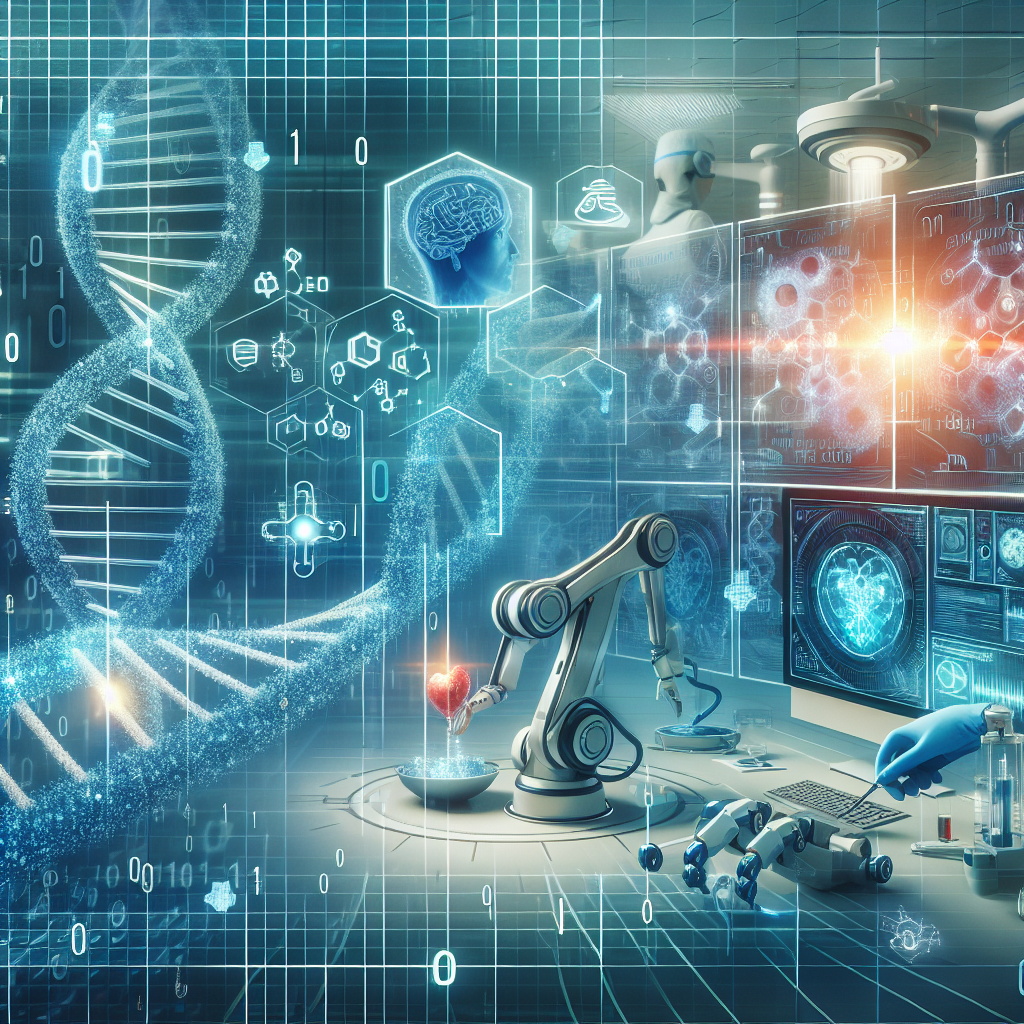Overview
The incorporation of Artificial Intelligence (AI) into the healthcare sector is dramatically changing the delivery of medical services, enhancing efficiency, accuracy, and focusing on patient needs. From refining diagnostic processes to customizing treatment options, AI is reshaping the medical field one algorithm at a time. This article delves into the various uses of AI in healthcare, its advantages, and the challenges associated with this technological advancement.
The Growth of AI in Medical Diagnostics
Improved Diagnostic Precision
In the past few years, AI systems, especially those utilizing deep learning techniques, have demonstrated outstanding capabilities in analyzing medical images. For example, AI tools in radiology can evaluate X-rays, MRIs, and CT scans with great accuracy, frequently matching or exceeding the performance of human radiologists. Studies published in esteemed journals have indicated that AI can reliably identify conditions such as pneumonia, tumors, and fractures at earlier stages.
Predictive Modeling
AI is adept at processing large datasets and recognizing patterns that may elude human analysis. Predictive algorithms can assess patient histories, genetic data, and demographic factors to anticipate health risks and potential disease outbreaks. Solutions like IBM’s Watson have been utilized to forecast the emergence of diseases such as diabetes and heart conditions, facilitating proactive measures that can save lives.
Customized Treatment Approaches
Modifying Therapies
One of the most exciting aspects of AI in medicine is its ability to support personalized treatment. By evaluating genetic information and treatment responses, AI can suggest tailored therapies for cancer patients, improving treatment effectiveness and reducing side effects. For instance, algorithms can identify which individuals might respond favorably to specific immunotherapies based on their genetic profiles, ensuring efficient use of medical resources.
Clinical Decision Support Systems
AI-powered clinical decision support systems are being embedded in electronic health records (EHRs) to assist healthcare practitioners in selecting optimal treatment paths. These systems analyze clinical guidelines, patient information, and the latest research to deliver evidence-based recommendations, contributing to better patient outcomes.
Enhancing Operational Efficiency in Healthcare
Streamlining Administrative Processes
Administrative duties, which often burden healthcare workers, are being simplified through AI technology. Natural language processing (NLP) can automate documentation tasks, enabling clinicians to dedicate more time to patient care rather than administrative work. Additionally, AI-driven chatbots are employed for managing appointment scheduling and responding to patient inquiries, further alleviating administrative pressures.
Optimizing Resources
AI can enhance hospital efficiency by forecasting patient admissions, which improves resource management. Predictive analytics can evaluate trends to anticipate busy periods, ensuring that staffing and medical supplies are sufficient to meet patient requirements. This approach can lead to reduced wait times and more effective care delivery.
Ethical Considerations
Data Security
As AI usage increases, significant concerns regarding data privacy and security arise. Patient information is sensitive, and the ethical implications surrounding its use must be thoroughly examined. Adhering to regulations such as HIPAA in the U.S. is essential to safeguard patient data.
Equity and Bias
AI algorithms are only effective based on the quality of their training data. If the data is biased, the outcomes may be skewed, potentially causing health disparities among various demographic groups. Developers and researchers should prioritize fairness to ensure that AI in medicine serves all communities equitably.
Final Thoughts
AI is undeniably altering the healthcare landscape, improving diagnostic accuracy, personalizing treatments, and boosting operational efficiencies. Although the potential benefits are vast, stakeholders in healthcare must address ethical issues and data integrity challenges to fully harness this technology’s advantages. As algorithms continue to advance, the medical community should collaborate to integrate AI wisely and effectively, aiming for a future where human expertise and artificial intelligence together enhance patient care.

